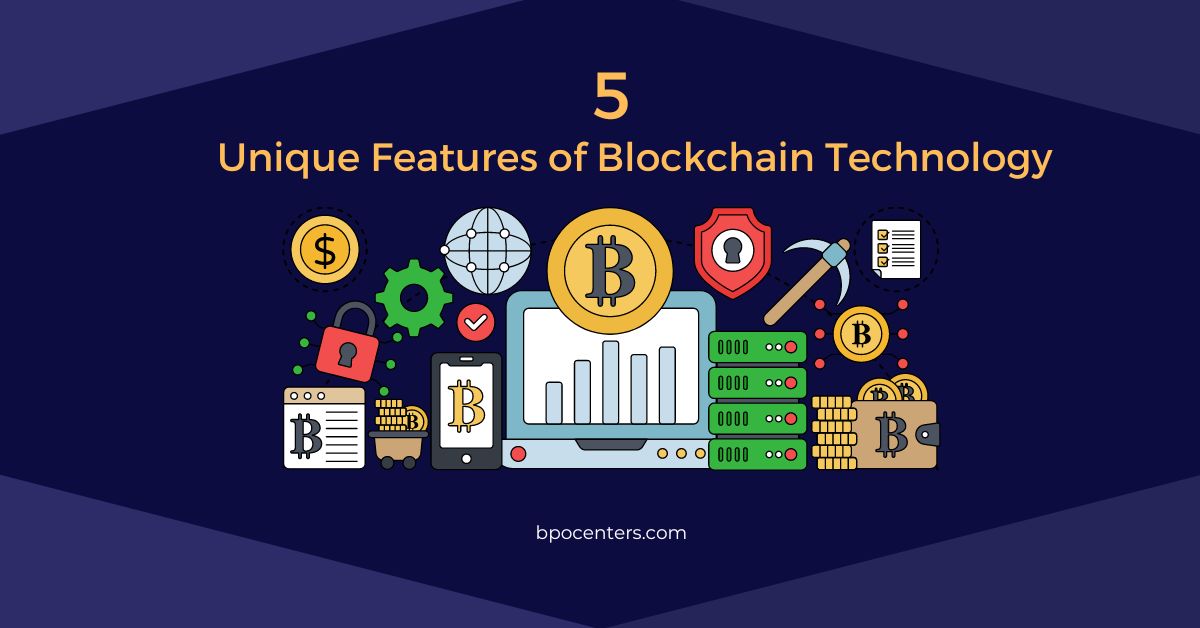Blockchain can be referred to as a shared and immutable ledger that tracks assets in a business network and facilitates the method of recording transactions. It is a database that runs on a peer-to-peer network of systems, which are termed nodes. Every participant in the network has access to blockchain technology and its history. In the words of blockchain call center experts, after the recording of a transaction, the accounts of each participant are updated with the necessary information. Transactions are grouped in blocks, each of which is connected to the one that came before it. This creates a chronological record that is impossible to tamper with or falsify. So, let’s have a look at the features of blockchain technology:
- Immutable: This technology operates through a collection of nodes and is an unalterable network. Each node has a copy of the digital ledger. When it is about adding a transaction, each node evaluates the validity of the transaction. Thereafter, it’s added to the network. The validated records are irreversible and can’t be altered. It suggests that no user on the network can change, edit, or delete it.
- Distributed: Every network participant has a copy of the ledger, thereby ensuring transparency. A public ledger will give full-proof information about each participant on the network and transactions. With this distributed computational power across the network, you can hope for a better outcome. It is one of the most important features of blockchain technology due to no scope of malicious changes in the ledger, no extra favors, proof of verification, managership, and quick response. To know more about this aspect, get in touch with blockchain customer support
- Decentralized: Blockchain technology is decentralized which suggests it doesn’t come with any regulatory authority or individual monitoring the framework. The network is maintained by a group of nodes making it decentralized. Since the system doesn’t demand any governing body, you can easily access it from the web and store your assets like cryptocurrencies, valuable documents, contracts, etc. Blockchain gives you direct control over these assets with a private key.
- Increased security: Since there is no central authority to regulate transactions, don’t think that anyone can change the patterns of the network for their convenience. With encryption, you get an added layer of security for the system. Along with decentralization, cryptography provides an added level of protection for users. Cryptography can be referred to as a complex mathematical algorithm that serves as a firewall for attacks. Every data on the blockchain is hashed cryptographically. In other words, the information on the network doesn’t reveal the true nature of the data.
- Consensus: Blockchain technology thrives because of consensus algorithms. You can know more about this aspect by calling blockchain customer service. The architecture is carefully designed, and consensus algorithms are at the center of this architecture. Each blockchain comes with a consensus mechanism to enable the network to make decisions. In simple words, the consensus is a decision-making process for the collection of nodes active on the network. In this case, the nodes arrive at an agreement quickly. Since millions of nodes are authenticating a transaction, a consensus is vital for a system to function efficiently.
Considering all the features, we can assume that blockchain is here to stay. Though some are skeptical about the disruptive potential of blockchain, this technology holds immense possibilities and can significantly impact the operations of every industry.
If you are looking for a reliable blockchain customer support partner, your search ends with the experts at https://bpocenters.com/. Here, you get access to professionals who have tons of experience in delivering exceptional customer service. Moreover, the agents are native English speakers and can address the queries of clients precisely. It’s the proactive approach that makes them stand apart from others.


